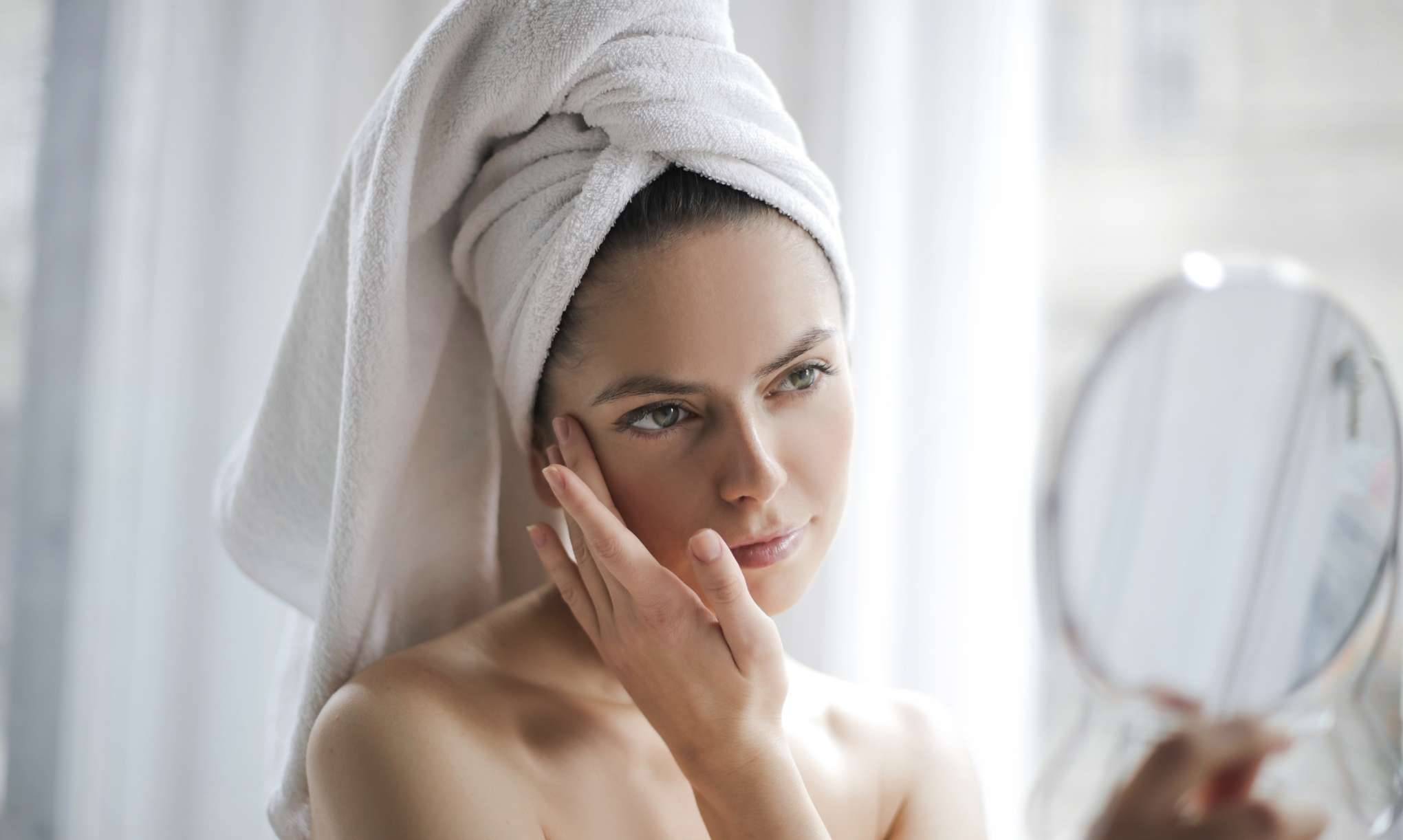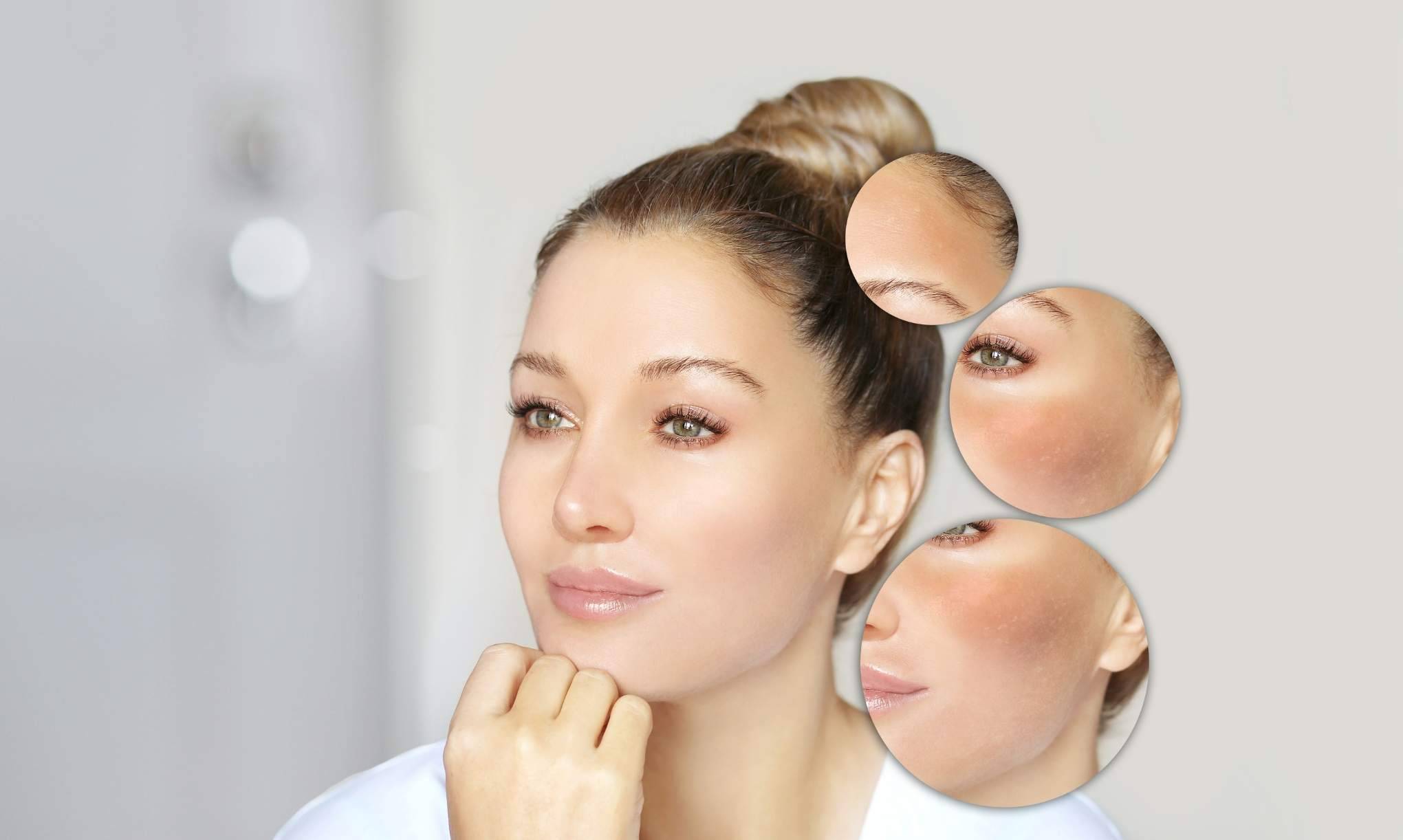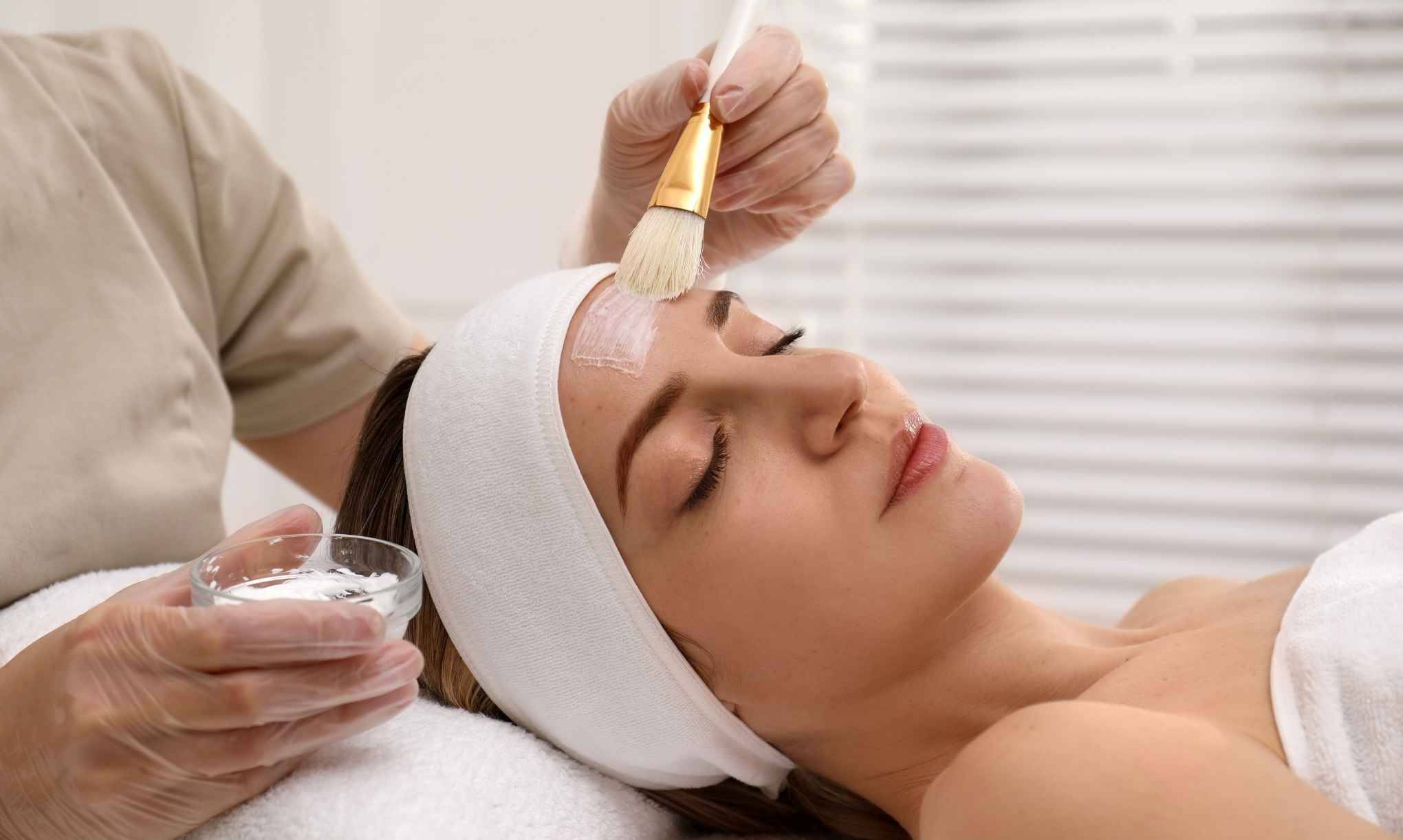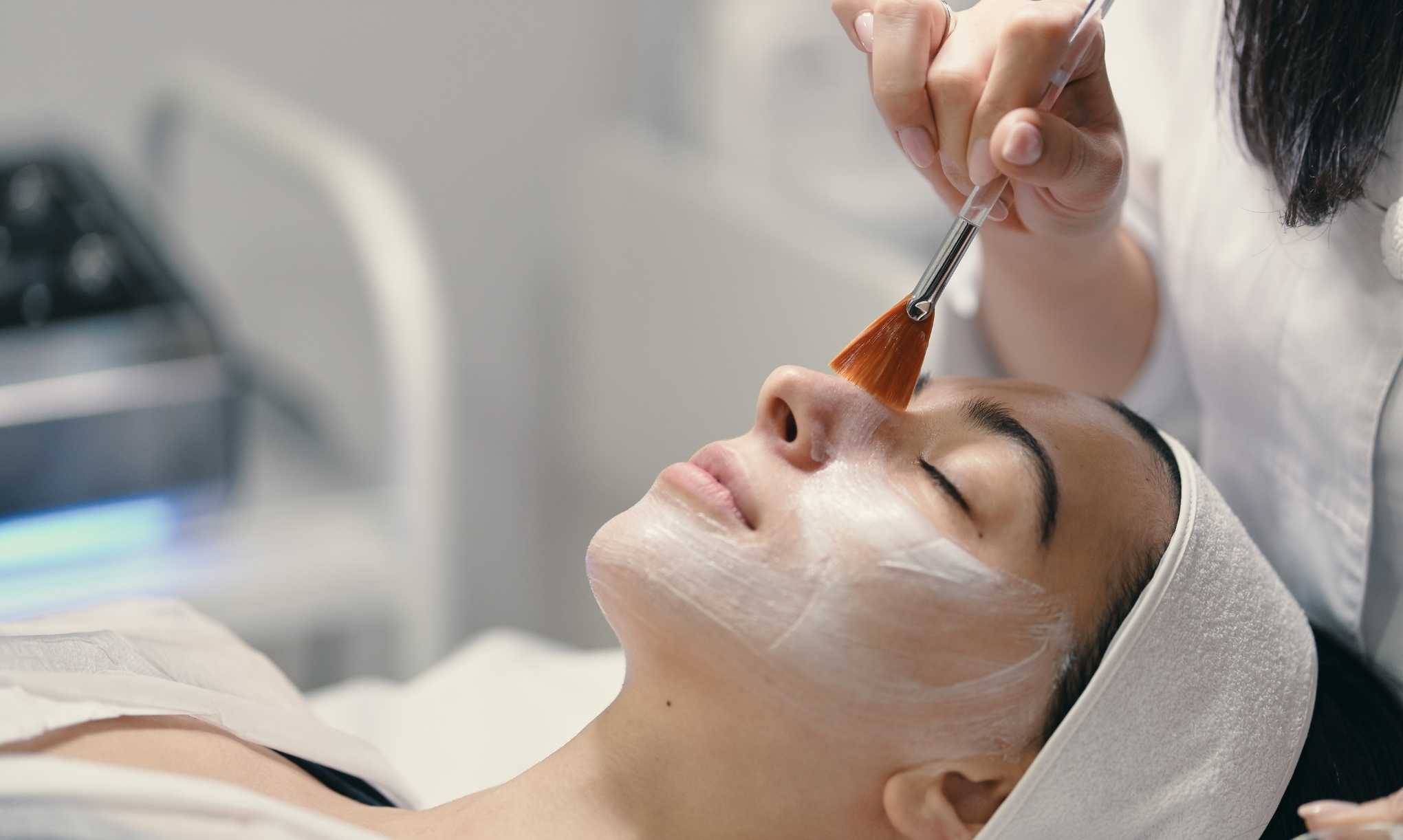All skin types can achieve flawless skin with slightly extra care

By Kath Wong | August 22nd, 2025
When you have sensitive skin, even small things can cause irritation. A product that works for your friend may leave you with redness or burning.
That is why you need a facial for sensitive skin that focuses on calming, protecting, and healing. If you have ever felt nervous about trying new treatments, you are not alone.
Many people with sensitive skin avoid facial treatments because they fear a reaction. But when chosen carefully, the right facial treatments can actually strengthen your skin and give you the glow you want.
Why Sensitive Skin Needs Extra Attention?
Sensitive skin is different. It reacts faster and stronger to products, pollution, and even weather. You may notice redness, itching, dryness, or a burning sensation after applying creams or cleansers. Sometimes, even water can trigger a reaction.
We understand how frustrating this can be. You try to take care of your skin, but instead, it feels worse. The truth is, your skin barrier is weaker, which makes it harder to protect against irritants. That is why sensitive skin needs gentler care. Harsh scrubs, strong acids, and heavy fragrances can damage it further.
When you go for a facial for sensitive skin, the products and techniques are chosen with care. The goal is not only to clean but also to soothe, hydrate, and strengthen. That makes a huge difference to how your skin feels afterward.

If you have sensitive skin, you may already know your triggers. But sometimes they are not obvious. Here are some common ones:
· Harsh skincare products with alcohol or strong fragrances.
· Environmental factors like sun, wind, or pollution.
· Stress, which increases inflammation.
· Hot showers that strip natural oils.
· Wrong treatments or facials designed for normal skin.
You cannot avoid all triggers. But knowing them helps you make better choices. When you understand what your skin reacts to, you can select facial treatments and products that support rather than stress your skin.

When you book a facial treatment for sensitive skin, the approach is very different from a regular one. The steps are slower, gentler, and done with calming ingredients. The focus is on reducing irritation, hydrating deeply, and protecting your barrier.
Most facial treatments for sensitive skin avoid:
· Harsh exfoliation.
· High-strength acids.
· Steam that can increase redness.
Instead, they include soothing masks, mild cleansers, and serums with calming agents like aloe vera, chamomile, or oatmeal. The therapist will also adjust pressure during massage to avoid stress on your skin. By the end, your skin should feel calm, not raw.
Best Facial Treatments for Sensitive Skin
1. Calming Hydration Facial
If your skin feels dry and itchy, this is a lifesaver. It focuses on adding moisture with hyaluronic acid, aloe, and glycerin. These ingredients hold water in your skin and reduce irritation. You walk out feeling refreshed, with plumper skin.
2. Oxygen Facial
This treatment uses a gentle flow of oxygen to deliver vitamins and serums deep into your skin. It feels cool and soothing. For sensitive skin, oxygen facials reduce redness and give a healthy glow without causing peeling or irritation.
3. LED Light Therapy Facial
Red LED light has healing benefits. It calms inflammation, reduces redness, and promotes skin repair. The therapy is non-invasive and safe for sensitive types. If acne makes your skin sensitive, this is a good choice.
4. Oatmeal Facial
Oatmeal is one of the most soothing natural ingredients. An oatmeal facial involves masks and scrubs made with finely ground oats. It calms itching, softens skin, and reduces irritation. This is great if you want something natural.
5. Chamomile or Aloe Vera Facial
Both chamomile and aloe are famous for calming skin. These facial treatments reduce redness and irritation quickly. They are also safe for most people with sensitive skin.
6. Gentle Enzyme Facial
Enzymes from fruits like papaya or pumpkin are milder than chemical acids. They help remove dead skin without scratching or burning. This facial leaves your skin smooth but not over-exfoliated.
7. Sensitive Skin Deep-Cleansing Facial
Yes, even sensitive skin needs cleansing. But this facial uses gentle, fragrance-free cleansers and lukewarm water. Blackheads and dirt are removed carefully without squeezing too hard. The end result is clean but calm skin.

How to Choose the Right Facial for Your Sensitive Skin?
Not every “sensitive skin facial” in clinics are the same. You need to ask questions before you book. We suggest you:
· Ask what products are used and check if they are fragrance-free.
· Avoid treatments with harsh peels or strong acids.
· Inform your therapist about past reactions.
· Start with a patch test before applying a mask or serum on your full face.
Remember, your skin is unique. What works for one person may not work for you. That is why you should always share your concerns openly with your therapist.
At-Home Care Between Facial Treatments
A facial for sensitive skin will give you relief, but your daily routine matters more. If you continue to use harsh cleansers or skip sunscreen, your skin will remain fragile. Here are simple steps you can follow:
· Use a mild, fragrance-free cleanser twice a day.
· Apply a lightweight, soothing moisturizer.
· Never skip sunscreen, even indoors.
· Avoid over-washing or scrubbing.
· Drink water and manage stress.
These habits help keep your skin barrier strong. With time, your skin will react less often and stay healthier.
When to See a Dermatologist?
Sometimes sensitive skin is more than just sensitivity. It may be a sign of conditions like rosacea, eczema, or contact dermatitis. If your redness or irritation does not improve, it is wise to see a dermatologist. They can guide you on medical treatments and prescribe products suited to your skin.
Key Takeaway
Caring for sensitive skin is not about avoiding facial treatments forever. It is about finding the right facial for sensitive skin that heals instead of harms. Treatments like oxygen facials, oatmeal masks, LED therapy, and calming hydration facials can transform how your skin feels.
With the right care at home and the right facial treatments at clinics, your skin can be calm, glowing, and confident again. Always listen to your skin, choose gentle options, and never hesitate to ask questions before a treatment.

Ready to Care for Your Sensitive Skin?
Your skin deserves treatments that soothe and protect, not irritate. A facial for sensitive skin can make a big difference in how calm, healthy, and glowing you feel. From hydration facials to LED therapy, the right choice can transform your confidence.
If you’re planning to book a safe and professional facial while travelling, you can explore options on Trambellir.com. The platform connects you with trusted clinics and spas across Asia where sensitive skin facial treatments are performed by experienced professionals. This way, you can relax knowing your skin is in expert hands.
FAQs
Q1. What makes sensitive skin different from normal skin?
Sensitive skin has a weaker barrier that reacts more easily to products, weather, and pollution. This often causes redness, itching, dryness, or burning sensations.
Q2. Which facial treatments are best for sensitive skin?
Some of the best facial treatments for sensitive skin include calming hydration facials, oxygen facials, LED light therapy, oatmeal facials, chamomile or aloe vera facials, gentle enzyme facials, and deep-cleansing facials with mild products.
Q3. What should I avoid during a facial treatment if I have sensitive skin?
People with sensitive skin should avoid harsh exfoliation, high-strength chemical peels, strong acids, steam treatments, and products with heavy fragrance or alcohol.
Q4. Can facial treatments actually improve sensitive skin?
Yes, when done with the right products and techniques, facial treatments can soothe irritation, hydrate the skin, strengthen the barrier, and even reduce sensitivity over time.
Q5. How can I take care of my sensitive skin between facial treatments?
You should use a mild fragrance-free cleanser, apply a lightweight moisturizer, always wear sunscreen, avoid harsh scrubs, and stay hydrated. Managing stress also helps keep flare-ups under control.